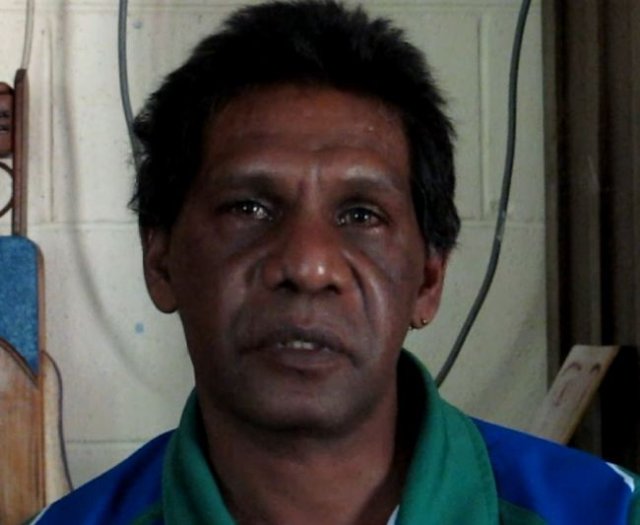
Daniel Fejo is a candidate for the First Nations Political Party running for the seat of Blaine in the August 25 Northern Territory elections. Fejo is a Larrakeyah man and a home and community care worker in the Bagot community. Fejo spoke to Green Left Weekly’s Peter Robson.
* * *
What does the First Nations Political Party say about the proposed nuclear waste dump in the NT?
There’s talk about the nuclear waste that is [proposed] at Muckaty Station. The policy that we are putting forward is that we don’t want any waste coming through that corridor. There is the boundary and the railway corridor there, and there is also a bridge. I don’t want to see nuclear waste coming through our community and I don’t want that in any community in Australia.
The NT intervention was put in place in 2007. It targeted remote and urban Aboriginal communities for a raft of discriminatory changes to welfare and land rights. What do you think about the NT intervention?
It should be only in selected communities. What [the government] said was that there was consultation with the communities that said “Yes, we want to do this.” But there was no consultation. Where the intervention was born was in Queensland in the Cape York area. That’s where communities were having the same problems but the whole of north Queensland wasn’t blanketed like the Territory was. These communities were given the option to say what they wanted to help clean things up.
I’m saddened by how it’s gone. Coming to the end of this intervention period, they now have added on this [legislation], Stronger Futures. And it’s not working. All they are doing is adding on and there is nothing changing. That is why we’ve got a lot of people from communities coming in to Darwin.
That’s where I see the intervention has put our people in a nowhere-man’s-land. It has taken things away from them. And if you have something taken away from you, you feel lost. That’s what’s currently happening now.
I see when I drive down the street doing my daily work, I see these things. Other people turn a blind eye and say, “there’s another blackfella sitting there wasting away”. But you’ve really got to ask the question: “Why are they wasting away?” It’s because things have been taken away from them.
Housing is another serious issue in the NT. Are there specific issues for Aboriginal people?
In Darwin, our Aboriginal hostels are fully booked. For people seeking housing here in Darwin, some of them are staying with family members and that leads to overcrowding. That goes back to the issue of anti-social behaviour, people coming here and drinking and carrying on. It makes me feel bad for the person who came over to get away from their community, but also they are coming here to seek medical aid and they need a place [to stay].
There is a lot of pressure put on the legitimate people who are coming here for those [reasons].
With long-term people who have lived here in Darwin for over 50 years, who rent their house through NT Housing, another option is [to] sell them the house But take into consideration the rent that they’ve paid over the years that they’ve been there. And make it affordable for them so that they don’t have to move out of those places.
The funding cuts to remote Aboriginal homelands is another issue related to the Stronger Futures laws. What do you think about the level of support for the homelands?
My understanding of homelands is, out in the community is another place for the family group to go out and that’s their spot. That’s their place. It’s a place for them in the homelands, out of the main community. That’s their place with all of the family connections that are there.
There should be more of it, more support for those people. That’s their country. That’s where they belong. That’s why they say: “That’s my homeland there. I’m going to sit down there, because that’s where I belong.” That’s their area. There should be support for that.
Years ago, there was support for homelands but I don’t know what happened there. It sort of fell away. And then, with the intervention coming in, it’s taken away a place for those people to go and live.
The way the current situation is, we’d like to have a house out there, and we’d like to have water. Those are the services that we need out there. Having a homeland is about maintaining the land. Looking after Mother — that’s what land is to us.